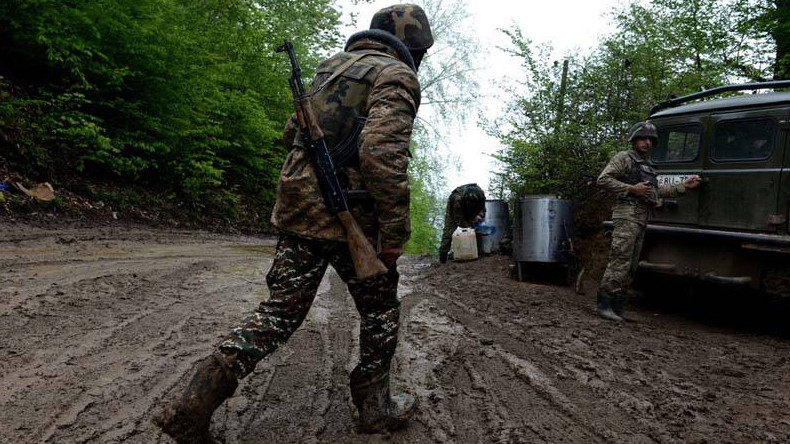
The Council of Foreign Relations assesses ‘the high risk of renewed clashes’ over Nagorno Karabakh
“The likelihood that Armenians and Azerbaijanis will clash over Nagorno-Karabakh in the next twelve months is high,” says the report released by Council of Foreign Relations analytical centre.
The report notes that the situation remains tense following fierce fighting in April 2016 that marked the worst bloodshed since the 1994 cease-fire that established the current territorial division.
“Renewed conflict over Nagorno-Karabakh could reverberate in dangerous ways. Russia is committed by treaty to defend Armenia, Turkey has pledged to protect Azerbaijan, and Iran borders both nations and contains an Azerbaijani minority that far outnumbers the population of Azerbaijan itself. Furthermore, the South Caucasus region has been essential to efforts to reduce the European Union’s energy dependence on Russia and has been a major recipient of Western foreign direct investment and aid. New oil and gas pipelines have benefited Azerbaijan, Georgia, and Turkey; their economies now depend on the revenues and energy this vulnerable network provides. Renewed conflict risks triggering civil unrest or a humanitarian crisis in Armenia and Azerbaijan, or neighboring states, and could lead to even greater Russian military involvement in the region. The high level of attention Washington has paid to Nagorno-Karabakh—which includes twenty years of working alongside Russia and France as co-chairs of the OSCE Minsk Group—underscores the strong U.S. interest in preserving peace,” notes the author of the report.
The report states that Azerbaijan is most likely to use military force to bring the issue to a head and ultimately seek to change the status quo.
“The April 2016 clash demonstrated the effectiveness of this strategy. President Aliyev had been pointedly criticized for restricting opposition parties, arresting activists, and curtailing freedom of the press. These actions, coupled with a sharply declining economy, resulted in mass protests in early 2016. When fighting broke out with Armenia, however, patriotism soared, flags flew from windows, and young people declared their readiness to enlist,” the report notes.
Regarding Armenia, the authors of the report say: “Armenia could decide that the time is ripe to formally recognize an independent Nagorno-Karabakh.”
The report goes on stating that extensive hostilities over Nagorno-Karabakh jeopardize the considerable successes the United States has achieved over the past twenty-five years in promoting the independence and autonomy of Georgia, Armenia, and Azerbaijan, and supporting their political and economic development. Two U.S. imperatives—deterring Russian revanchism and establishing a new transportation network to deliver energy resources from Azerbaijan and Central Asia to Western markets independent of Russia and Iran—could be imperilled. Furthermore, renewed warfare could exacerbate already problematic U.S. relations with Russia, Turkey, and Iran, each of which could become embroiled in the conflict.
Assessing prospects for some mitigation option for preventing conflict escalation, the reports suggests the United States could promote a UN Security Council resolution condemning any major military action. “A secondary option, if known, would be to name the instigator. Working with partners, the United States would penalize the party that initiates any major escalation—through public condemnation and potentially by withdrawing economic assistance or using sanctions. It could actively discourage economic support from IFIs and private investors,” says the document,
Taking into account the mentioned risks the report proposes some preventive measures reduce the tension in the conflict zone, namely move to transfer mediation responsibility from OSCE to the United Nations, threaten to withdraw from OSCE Minsk Group leadership, invigorate the Minsk Group co-chairs to promote a resolution, rather than manage the conflict, insist that agreed-upon confidence- and security-building measures (CSBMs) be implemented, etc.
According to the report, Nagorno-Karabakh could become a stepping stone for greater U.S.-Russia cooperation. “Possible intelligence sharing between the United States and Russia regarding military developments in this region could be helpful, as could discussions about whether strategic parity is being maintained given the substantial arms flows into the region,” the reports concludes.
Newsfeed
Videos






























